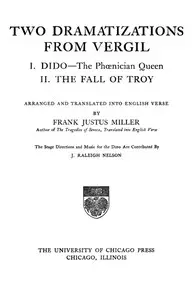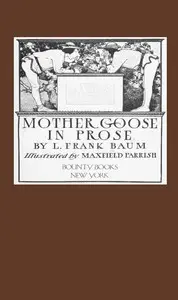"Two Dramatizations from Vergil: I. Dido—the Phœnecian Queen; II. The Fall of Troy" by Frank Justus Miller is a collection of dramatic adaptations of key episodes from Vergil's epic, the "Æneid", written in the early 20th century. The text focuses on the passionate love story between Dido, the Queen of Carthage, and Æneas, the Trojan hero, as well as the tragic events surrounding the fall of Troy. The dramatizations are presented in English verse, making Vergil’s classical themes accessible to a modern audience. The opening of the first dramatization introduces the reader to the dire situation faced by Æneas and his band of Trojan exiles following the destruction of Troy. After enduring numerous hardships, Æneas arrives on the shores of Carthage, where he encounters Dido, a refugee from Tyre. The prelude sets the stage for their fateful romance against a backdrop of divine interference and political intrigue, hinting at the tensions between personal desire and duty that will unfold throughout the narrative. The narrative captures the fall of cities and the impact of love intertwined with fate, setting a rich emotional landscape that is sure to engage readers interested in classical literature and drama. (This is an automatically generated summary.)

Two Dramatizations from Vergil: I. Dido—the Phœnecian Queen; II. The Fall of Troy
By Virgil
"Two Dramatizations from Vergil: I. Dido—the Phœnecian Queen; II. The Fall of Troy" by Frank Justus Miller is a collection of dramatic adaptations of ...
Genres
Released
2017-05-14
Formats
mobi
epub
epub3 (images)
mobi (images)
epub (images)
Free Download
Overview
About the Author
Publius Vergilius Maro, usually called Virgil or Vergil in English, was an ancient Roman poet of the Augustan period. He composed three of the most famous poems in Latin literature: the Eclogues, the Georgics, and the epic Aeneid. A number of minor poems, collected in the Appendix Vergiliana, were attributed to him in ancient times, but modern scholars generally regard these works as spurious, with the possible exception of a few short pieces.
Total Reviews
10.0k
Total reviews from Goodreads may change












